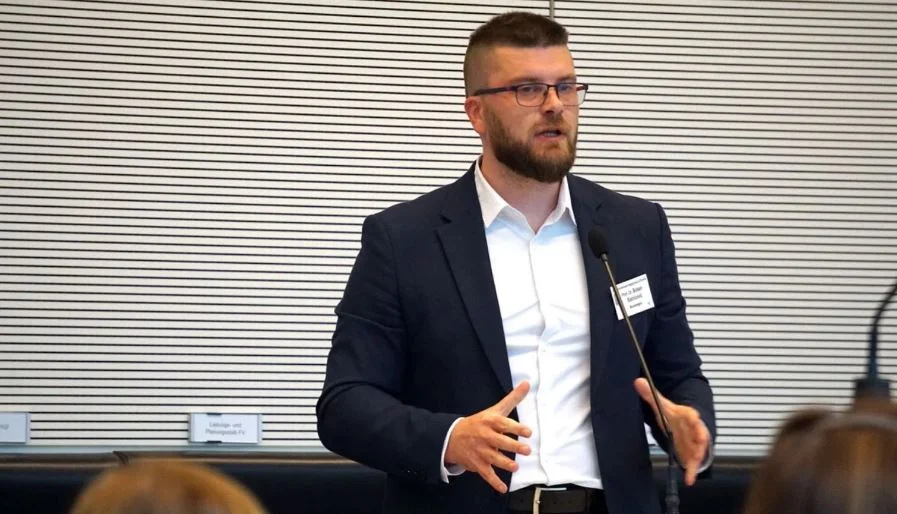Written by: Boban Batrićević
Jakov gave a speech abroad, which means one thing: Jakov embarrassed us again. This time, maybe even worse than when Vučić wiped the floor with him at Globsec while our young president nodded sweetly, like a lamb before its shepherd.
In Dayton – the place where crimes against civilians, genocide, and ethnic cleansing were suspended in a legal limbo known as a peace agreement – Jakov Milatović stated, without so much as a blink, that what happened in Bosnia and Herzegovina in the 1990s was a "civil war".
According to Jakov, then, there was no aggression, no systematic extermination, no camps, no rapes, no sieges of Bosnian cities, just a neighborly misunderstanding about property lines, as Šaranović would put it – a situational conflict.
But that’s the trend now – this new breed of politicians who play dumb on camera but know exactly whose interests they serve behind closed doors. "Civil war" wasn’t a slip of the tongue. It was a carefully chosen phrase, designed not to offend – not in Belgrade, not in Banja Luka. And as for Sarajevo, well, who cares, right? Certainly not him. Not when this kind of "diplomatic acrobatics" spits in the face of truth and tramples everything Montenegro has tried to do, at least officially, since 2006, to confront its past.
To be fair, the Dayton Agreement did stop the bloodshed. No one can deny that. But as a political framework, it’s a Frankenstein, cobbled together from ethnic quotas, dysfunctional governance, and permanent blackmail. That’s why it’s only cherished today by those who want Bosnia and Herzegovina to never truly function as a state, by Milorad Dodik, Russian consulates in Trebinje, and everyone else who sees Bosnia as a temporary mistake that should quietly be erased.
And now Jakov has found his place among them – not guilty, not accountable, just always eager to stay "neutral". But in this context, neutrality is a form of complicity. When you call what happened in Bosnia a civil war, you’re actively helping the revisionists wash the blood from their hands. You’re handing ammunition to those who call Srebrenica a myth and Ratko Mladić a hero.
So the problem isn’t just that Jakov embarrassed himself. The problem is that he embarrassed all of us. Words, once spoken, can’t be taken back, and this kind of shame doesn’t wash off. The real issue is that Montenegro, a country that once had the strength to face its disgraceful role in the '90s and break away from that dark legacy, is now led by a president trying to blur that line. And doing so in a place where evil was stopped, but never fully punished.








Komentari (0)
POŠALJI KOMENTAR